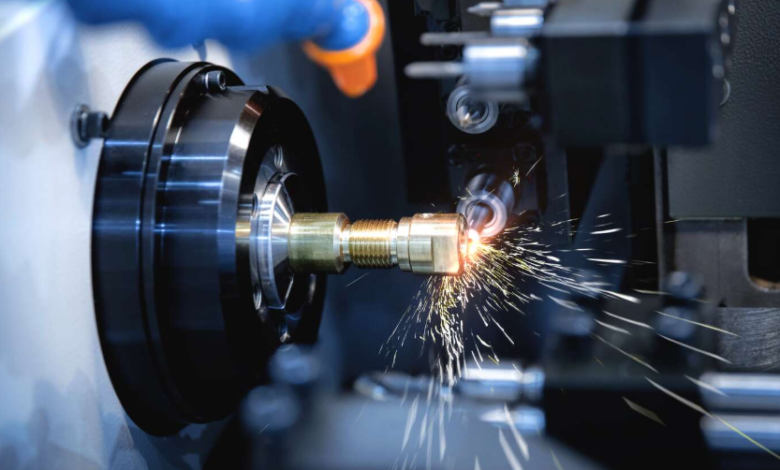Advantages of CNC Swiss Machineing in Modern Manufacturing

Understanding CNC Swiss Machineing
CNC swiss machineing is a high-precision manufacturing process used to produce small and complex components. Unlike conventional turning, this process supports the workpiece close to the cutting tool, reducing deflection and improving accuracy. It is commonly applied in industries such as medical, aerospace, electronics, and automotive, where tight tolerances and intricate designs are critical.
Essential Features of CNC Swiss Machines
Sliding Headstock Design
The sliding headstock is a key feature of CNC swiss machines. It allows the material to move along with the cutting tool, minimizing vibration and ensuring high-precision machining. This mechanism is especially useful for long, thin, or delicate parts.
Multi-Axis Capability
Many CNC swiss machines feature multiple axes, enabling simultaneous operations like turning, milling, and drilling. This functionality reduces the need for multiple setups and significantly improves production efficiency.
Automated Tool Systems
Automated tool changers allow CNC swiss machineing to operate continuously without manual intervention. This reduces human error and increases production consistency.
Benefits of CNC Swiss Machineing
Enhanced Precision
The close support of the workpiece provides superior accuracy, making CNC swiss machineing ideal for producing components with exact specifications, such as surgical implants and aerospace parts.
Increased Production Efficiency
Combining multiple operations in one setup saves time and reduces handling requirements, which is particularly beneficial for both small and large production runs.
Material Versatility
CNC swiss machineing can handle a wide range of materials including stainless steel, aluminum, titanium, brass, and some engineering plastics. This versatility allows manufacturers to cater to different industry needs.
Cost-Effective Solutions
Despite a higher initial investment, the process minimizes waste, reduces errors, and accelerates production, making it a cost-effective choice in the long term.
See also: Airline Cabin Crew Training course | Air hostess Course Available
Choosing the Right CNC Swiss Machineing Provider
Experience and Expertise
An experienced provider ensures that machining processes are optimized for precision and efficiency. Skilled technicians can handle complex designs and challenging materials effectively.
Modern Equipment
Providers with up-to-date, multi-axis machines and digital controls are better equipped to produce high-quality components consistently.
Quality Assurance
Reputable providers implement stringent quality control measures to ensure all components meet industry standards.
Flexibility
A reliable provider can manage urgent orders, design modifications, and large-scale production without compromising quality.
Applications of CNC Swiss Machineing
Medical Industry
CNC swiss machineing is widely used for surgical instruments, implants, and other medical devices that require high precision.
Aerospace Components
High-precision aerospace parts such as turbine blades, structural components, and fasteners benefit from the accuracy and reliability of CNC swiss machineing.
Automotive Parts
Engine components, fuel system parts, and other precision automotive elements are efficiently produced using CNC swiss machines.
Electronics Industry
Small and intricate electronic components such as connectors, housings, and terminals require the precision offered by CNC swiss machineing
Emerging Trends in CNC Swiss Machineing
Automation Integration
Robotic systems combined with CNC swiss machineing increase productivity, reduce manual labor, and maintain high quality in mass production.
Hybrid Manufacturing Techniques
Combining CNC swiss machineing with additive manufacturing allows for complex geometries, less material waste, and faster production cycles.
Sustainable Manufacturing
Energy-efficient machines and environmentally friendly materials are increasingly used, aligning high-precision manufacturing with sustainability goals.
Digital Simulation
Process simulation and digital twin technologies allow manufacturers to optimize operations before production begins, reducing errors and improving efficiency.
Conclusion
CNC swiss machineing plays a vital role in producing precise and complex components for modern industries. Its benefits include exceptional accuracy, efficiency, and adaptability to various materials. Selecting an experienced provider with advanced equipment and strict quality control ensures reliable and high-quality production. With ongoing advancements in automation and digital technologies, CNC swiss machineing continues to be a cornerstone of innovative manufacturing, supporting sectors such as medical, aerospace, automotive, and electronics.





